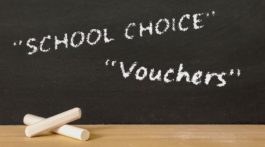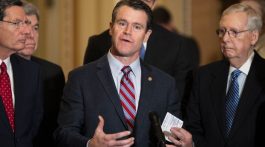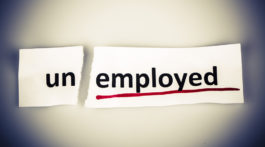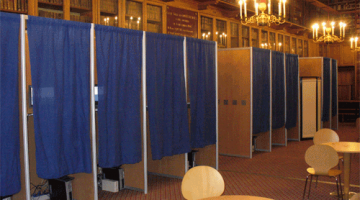From: Christine Matthews
Date: May 19, 2016
Subject: Indiana statewide survey resultsBellwether Research conducted a telephone survey of 600 registered voters in Indiana from May 11 – 15, 2016. The survey has a margin of error of + 4% in 95 out of 100 cases.
- Fully one-third strongly disapprove of his job performance, while 22% strongly
approve. This strong disapproval level is a notch higher than the 31% in our June, 2015 survey at the height of the RFRA controversy, although his 22% strong approval rating is higher than the 13% who strongly approved last summer. - Those undecided on the gubernatorial ballot disapprove by a 20-point margin (42% disapprove to 22% approve).
- In the overwhelmingly Republican doughnut counties, voters approve by only a 48% – 37% margin.
- In a trend that is evident throughout the survey, there is a chasm between college-educated voters and those with less than a bachelor’s degree. College-educated voters disapprove of Governor Pence’s performance (36% approve – 50% disapprove), while non-college voters narrowly approve, 42%-38%.
- Driven by voters under age 45, independents overwhelmingly disapprove of Pence’s performance (31% approve – 54% disapprove).
- Senior women give the governor a positive 45% – 30% approval rating, but women under 45 are the opposite, with a 30% approve – 47% disapprove rating.
2. Just 36% say Mike Pence should be re-elected, little improvement from his 32% re-elect rating in our June, 2015 survey.
- Six-in-ten independents are looking for a new person, while the same number of Republicans support Pence’s re-election.
- Seniors support Pence’s re-election by a 44%-39% margin, but they are the only age cohort to express more support for re-election.
- Women under 45 want a new person by a 59%-21% margin.
3. Mike Pence is up just 4 points (40% – 36%) over John Gregg, with 2% for Libertarian Rex Bell.
- On our June, 2015 survey, John Gregg had just 29% hard name identification (20% favorable – 9% unfavorable) and, while we did not measure it on this survey, he is unlikely to have improved on that significantly yet. The ballot support for Gregg contains an anti-Pence vote above and beyond a pro-Gregg vote.
- Each candidate is getting just over 70% of their party’s vote. This is an improvement for Gregg since October, 2015 when his support was 64% among Democrats and represents a slight decline for Governor Pence who was at 74% of the GOP vote in October.
- Independents are breaking for John Gregg by a 37% to 31% margin with 22% undecided. It is notable that independents are voting for Donald Trump by an 11-point margin and Todd Young by a 16-point margin, yet deviate on the gubernatorial ballot.
- Pence wins men by seven (44%-37%) and women by two (36%-34%). Women were significantly more likely to be undecided or refuse to answer.
- The governor wins among seniors 49%-32%, but the race is close among voters under that age.
- The ballot is tied at 39% among college-educated voters, while Pence leads 41%-33% among those without a college degree.
- Pence’s ballot support (49%) equals his job approval rating in the doughnut counties, with Gregg getting 28% of the vote.
4. The governor is trusted most on managing the state budget, but falls short
on education and John Gregg pulls even with him on other measures.
in each of the following areas?
|
- Trump leads 47% – 28% among men and trails 34% – 35% among women. In 2012, Romney won both men and women in Indiana with a small 5-point gender-gap (57% support among men, 52% among women).
- Trump wins 68% of all Republicans, but among those who say they supported another Republican candidate in the May primary, he gets 44% and 14% support Clinton.
- There is a 12-point gap between Trump’s support among GOP men (74%) and GOP women (62%).
- Clinton garners 52% from Democrats who say they voted for Sanders in the May 3rd primary, while Trump gets 10% of their vote.
- Trump leads Clinton among independents by a 36%-25% margin with significant undecideds.
- Trump wins college-educated voters 39%-35% and non-college educated voters by a more comfortable 43%-28% margin.
6. Congressman Todd Young has a 14-point lead over Baron Hill (36%-22%), but nearly three in ten are undecided.
- We did not ask name identification, but it is a safe bet given these numbers that Baron Hill is not terribly well-known. (He is getting just 56% of the vote among Democrats). Given the recent competitive U.S. Senate primary on the Republican side, Todd Young is certain to be better known.
- This general election contest is not on the radar screen of less engaged voters at this point.
- Young wins among men and women by a similar margin, although women are significantly more likely to be undecided, including 40% of women under 45.
- Young wins independents 35%-19%.
Survey Notes: At this point, we are screening only for registered (not “likely”) voters, so the sample includes those who tune into elections later than more politically- engaged likely voters. On the governor’s job approval number, we see a higher “undecided” than in past surveys, most likely because it was the first question asked after age and race screening questions. The refusal rate (5-7%) on the ballot questions is higher than we normally see with some interesting patterns. Non-Trump GOP primary voters have a much higher refusal rate on the presidential general election ballot (9%) than Trump GOP primary voters (2%). Non-Trump GOP primary voters and Sanders DEM primary voters also have much higher undecided rates on the presidential general election ballot which may indicate they aren’t ready to move on to their party’s general election candidate quite yet.
We have found in Indiana that party identification is a moving target and fluctuates a fair amount between surveys. We never weight by this self-reported measure, but ensure the sample properly reflects: age, gender, region, race (including race by region) and education, with an eye on ideology. This survey is on the higher end of Republican Party identification.
Sample Profile:
Gender
49% Male
51% Female
Are you currently registered to vote in Indiana?
100% Yes
For statistical purposes to ensure we have a representative sample, what is your age?
13% 18-29
17% 30-34
11% 35-44
14% 45-54
23% 55-64
22% 65 or older
For the same reason, please tell me if you consider yourself to be Hispanic or Latino?
4% Yes
96% No
10% Black
<1% Asian
3% Mixed race
4% Other
27% Democrat
22% Independent
5% Independent, lean Republican
4% Independent, lean Democrat
4% Refused
25% Very conservative
16% Somewhat conservative
37% Moderate
16% Liberal
6% Don’t Know/ref.
6% Vocational, technical or professional training
16% Some college courses
12% An associate Degree
28% A bachelor’s Degree
15% A post-graduate Degree
83% No
2% Refused
46% No
6% Refused
29% Landline















